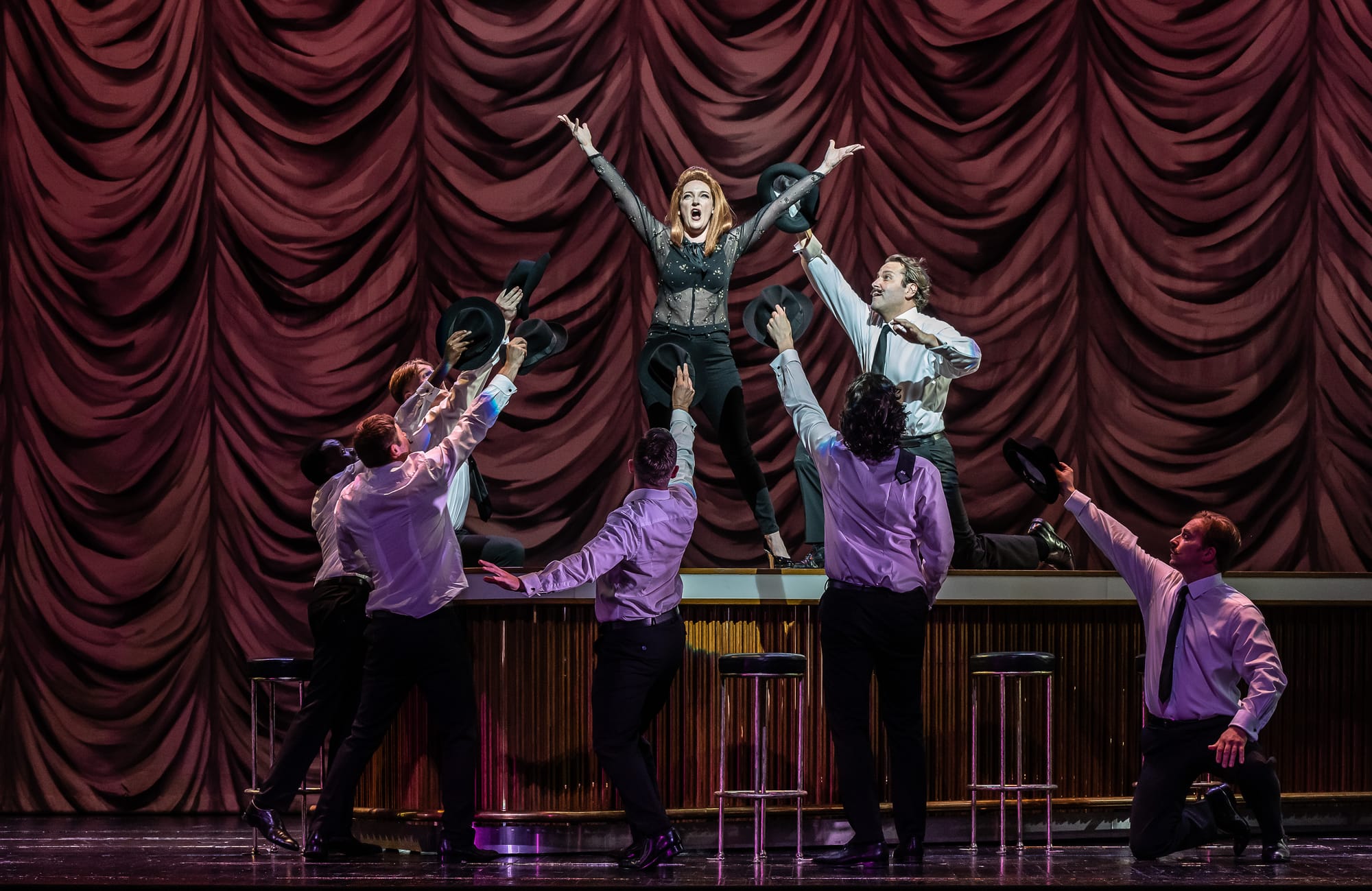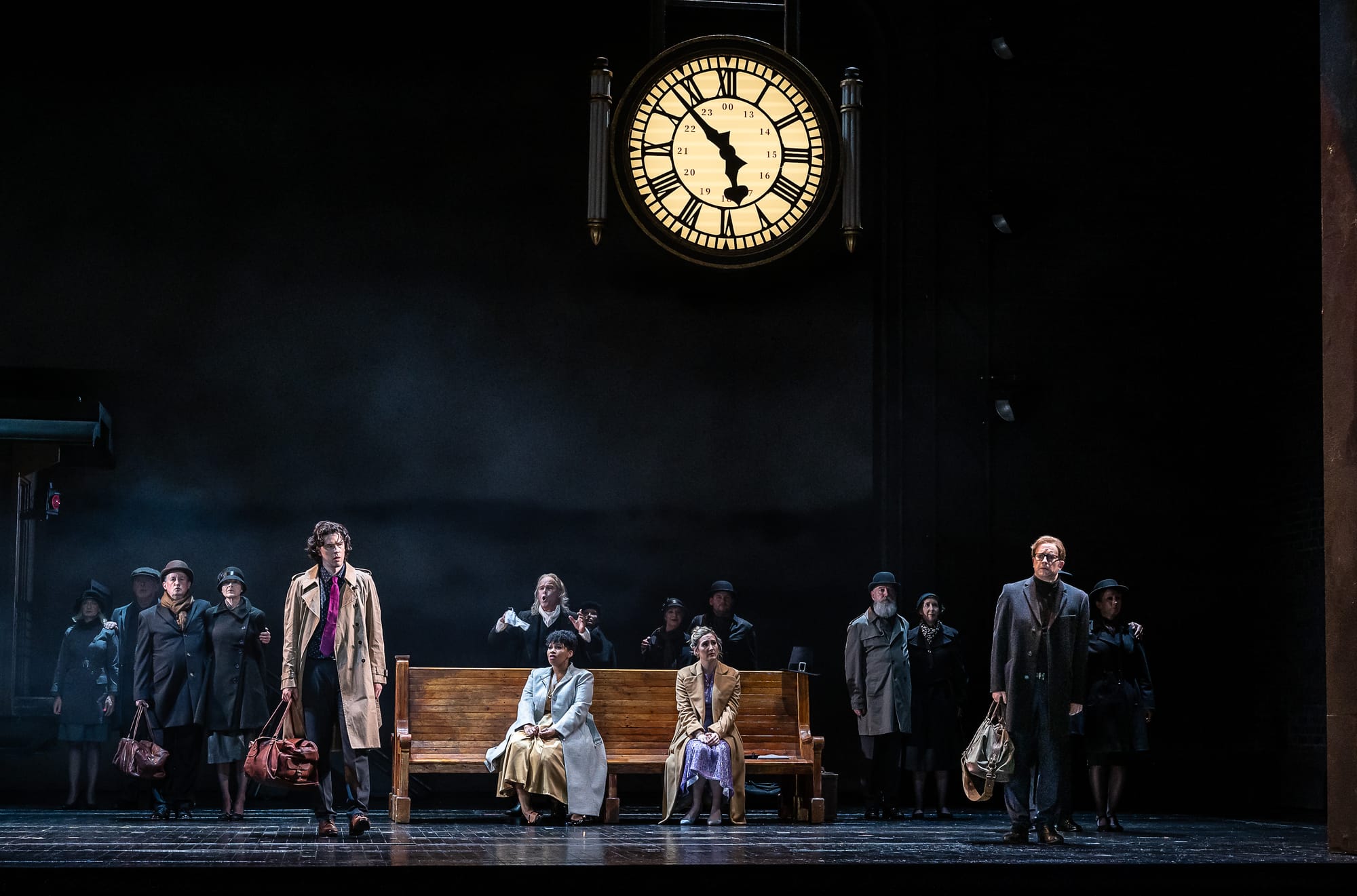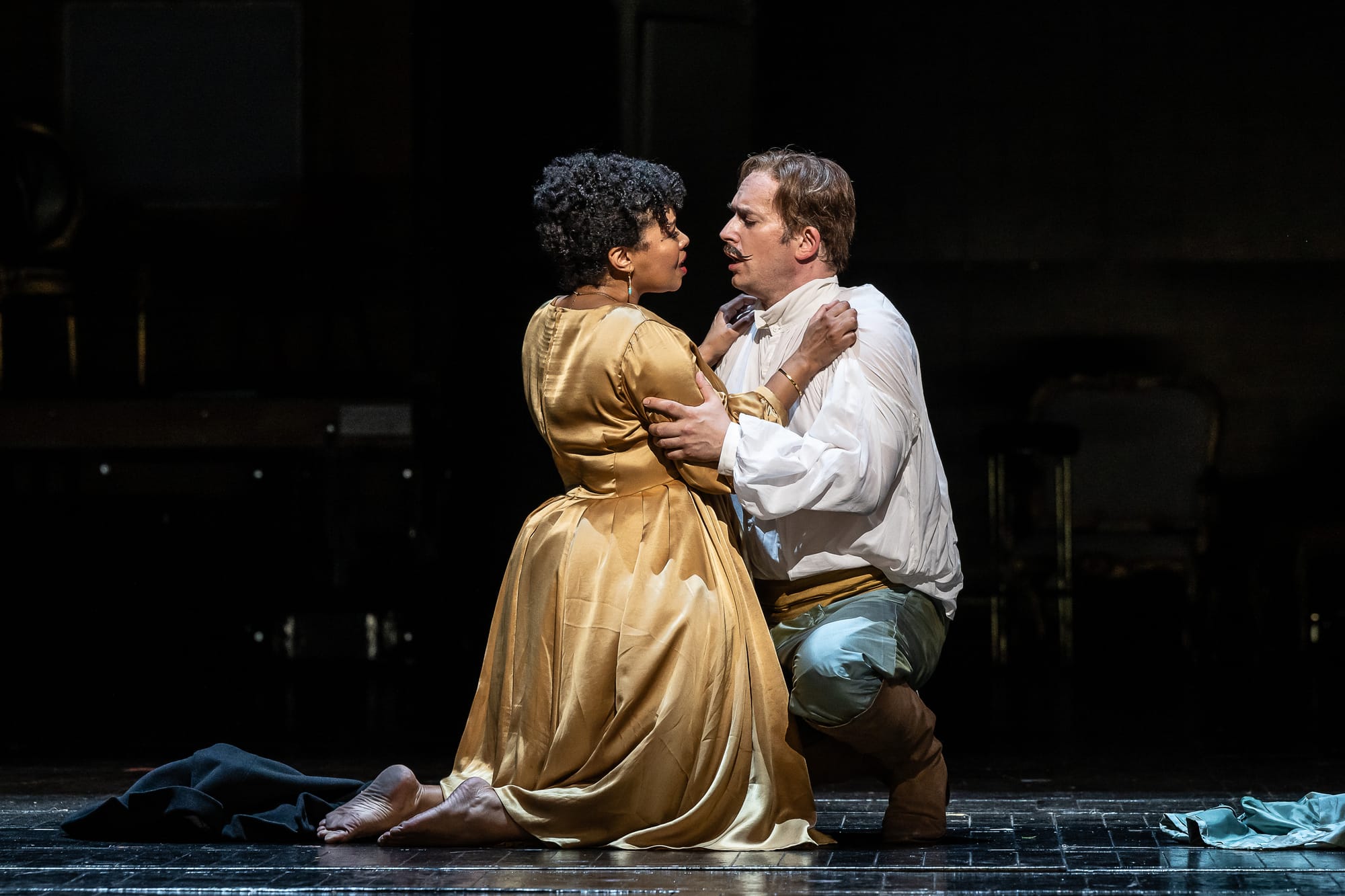
Mozart Così fan tutte (ed. Ferguson/Rehm). Cast; Chorus and Orchestra of the Royal Opera House, Covent Garden / Alexander Soddy. 26.06.2024
Cast:
Ferrando – Daniel Behle
Guglielmo – Andrè Schuen
Don Alfonso – Gerald Finley
Fiordiligi – Gold Schultz
Dorabella – Samantha Hankey
Despina – Jennifer France
Production:
Jan Philipp Gloger (director)
Olive Platt (revival director)
Ben Baur (set designs)
Karin Jud (costumes)
Bernd Purkrabek (lighting)
Katharina John (dramaturg)
Così fan tutte becomes Così fan tutti, emblazoned in theatrical lights for all to see in the final act (the ‘all’ referring then to both sexes, just not the female). There is a lot of theatre-within-theatre here: a cast take bows after a ‘performance’ during the Overture, for example. We are always aware that we are watching a story, so much so that it is difficult if not impossible to immerse oneself in Mozart and da Ponte’s gold. Jan Philipp Gloger’s production is often clever (the impression of figures within an art painting, for example), but in changing styles and eras so often across the evening, it becomes messy. A cabaret-like bar (Despina is barmaid), that oil painting, or a stylised train platform, perhaps referring to Brief Encounter all rub shoulders Covent Garden’s own programme booklets get a look-in on-srage, wrenching us to the present. The ‘real’ cast for the performance appears from the audience. The stage-within-a-stage Garden of Eden (complete with snake wrapped around tree) felt, frankly, forced.

Such stage dissonances are obviously deliberate, as is the dissonance with the plot in that the girls know soon on that the ‘Albanians’ are their betrothed in disguise. From that perspective we are not a million miles from Dmitri Tcherniakov’s wife-swapping production (seen most recently earlier this year at the Châtelet under Rousset). But at least Tcheniakov’s stage was constant. In Tcherniakov’s staging, there were three couples (Despina and Alfonso making the third); here, Alfonso was director not only of the ‘game’ of love with all its ramifications, but also at times, it was implied, of the production itself.
It’s all a bit self-consciously clever; it’s all a bit of a mess. Scenic and temporal discombobulation is hardly the aim of Così; so if that is what is foisted upon us, it has to illuminate, to leave us at the very least pensive (as opposed to frustrated). The production does make huge demands on the team, though, and those were carried out superbly, particularly the lighting of Bernd Purkrabek. Costume designer Karin Jud is clearly a virtuoso to cope so well with Gloger’s ideas.
So much for the meta-theatrical coat hanger this particular Così is hung upon. One thing is for sure: Mozart’s music is immortal and indestructible. The beauty of the first act’s ensemble ‘Soave sia il vento’ remained intact, a heart-stopping moment of pure beauty, the voices in excellent balance. The choral contributions were as expert as one might come to expect from this venerable institution.
Conductor Alexander Soddy marshals his forces well; this is fine but not absolutely inspired Mozart conducting, so that occasionally the energy drops. Individual orchestral solos (woodwind, plus some brilliant horn playing) indicated perhaps a resonance between players and conductor, mitigated on this occasion by the occasional ragged corner.
As to the individual players, it was the Despina and the Don Alfonso who shone. Gerald Finley is a truly great singer, and he delivered vocally and, as far as possible, dramatically, relishing the ‘game’. And what a powerful exclamation in the second act of ‘Miericordia!’. Jennifer France also needs little introduction; she is a singer of boundless energy, great stage presence and unerring, innate musicality. These she demonstrated in spades previously as Vixen Sharp-Ears (The Cunning Little Vixen, Opera Holland Park: 2021: review). Her voice is perfect for the role, light yet not insubstantial, every word clear, her ‘’In uomini! In soldati’ utter delight, topped only be her ‘Una donna a quindici anni’. And how she loved the voices of the Doctor and Notary. There sems to reason to doubt France’s career will continue its upward trajectory.
Which leaves the lovers themselves. The only real (temporary) disappointment was Andrè Schuen. His lyric baritone is often beautiful, but could be more nuanced; certainly in the earlier stages, when his decision to sing everything far too loudly made little sense. One settled, there were rewards aplenty. His male counterpart was Daniele Behle as Ferrando, beautifully honeyed in his ‘Un aura amorosa’. Of the lovers’ quartet, though, it was Golda Schultz who stole the show as a pure-voiced, believable, eminently Mozartian Fiordiligi, her ‘Per pietà’ a show-stopping highlight, so tender and beautiful. And while not every aspect of Samantha Hankey’s Dorabella truly satisfied (a somewhat fluttery vibrato at times), there is no denying her strength or range (her ‘Smanie implacabili’).

This is hardly this production’s first outing, although it was my first exposure to it. Some stagings pose questions and invite one back for more; this one left me frustrated. Go for the orchestra, the chorus and the soloists, by all means; but most of all go for Mozart’s music. That never disappoints.
All photos (c) ROH 2024. Photographed by Clive Barda.








